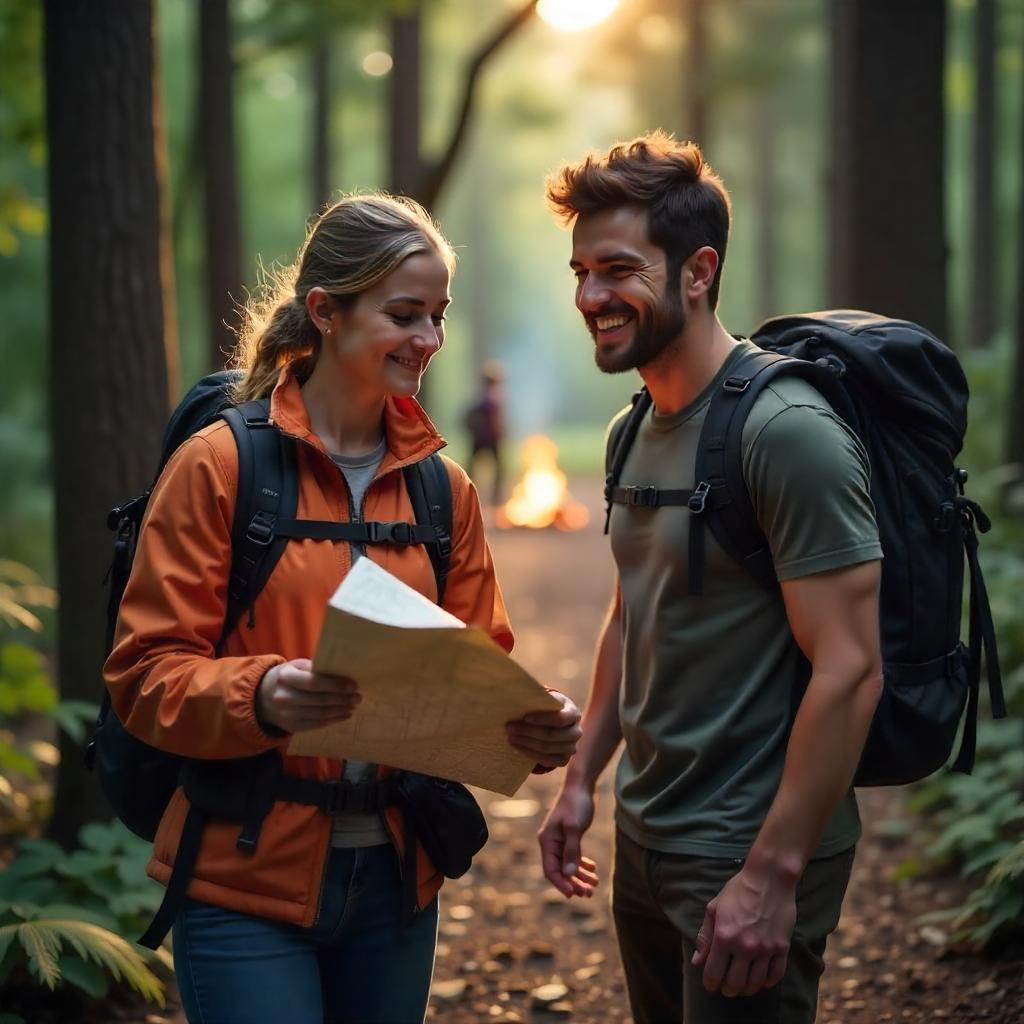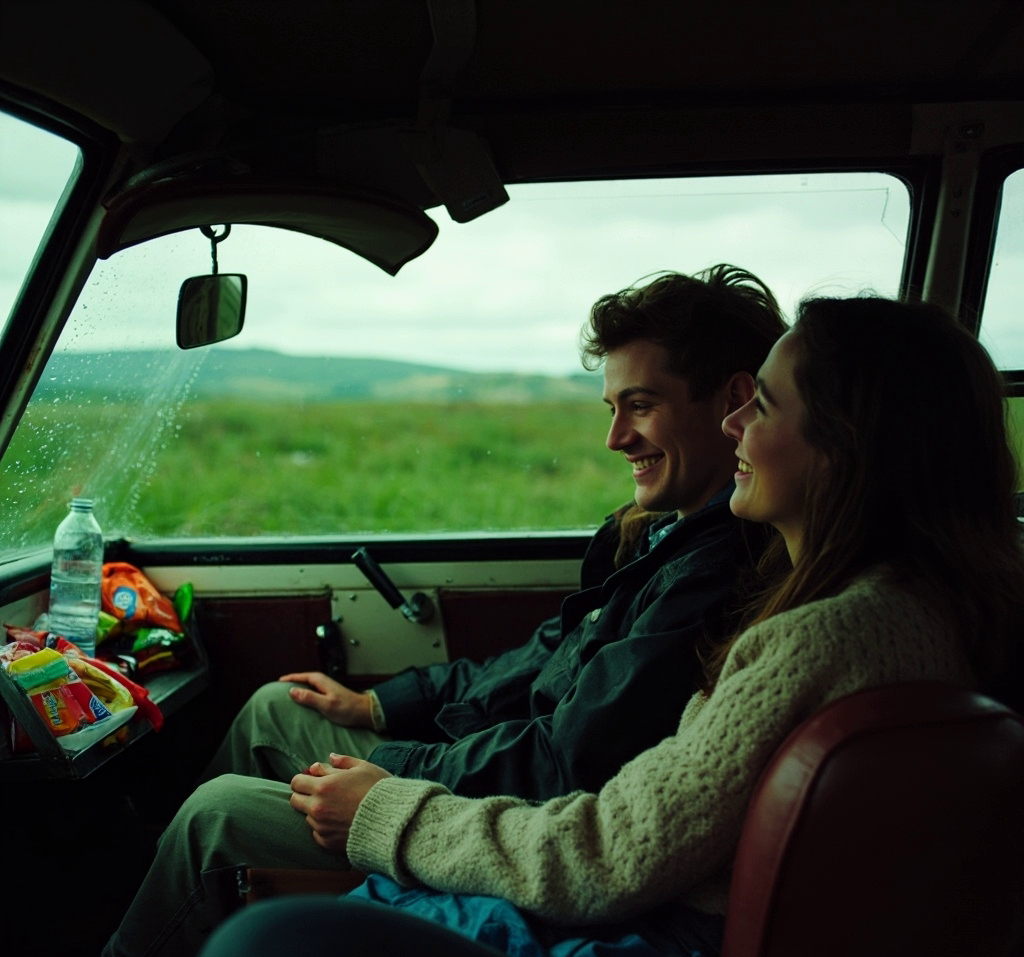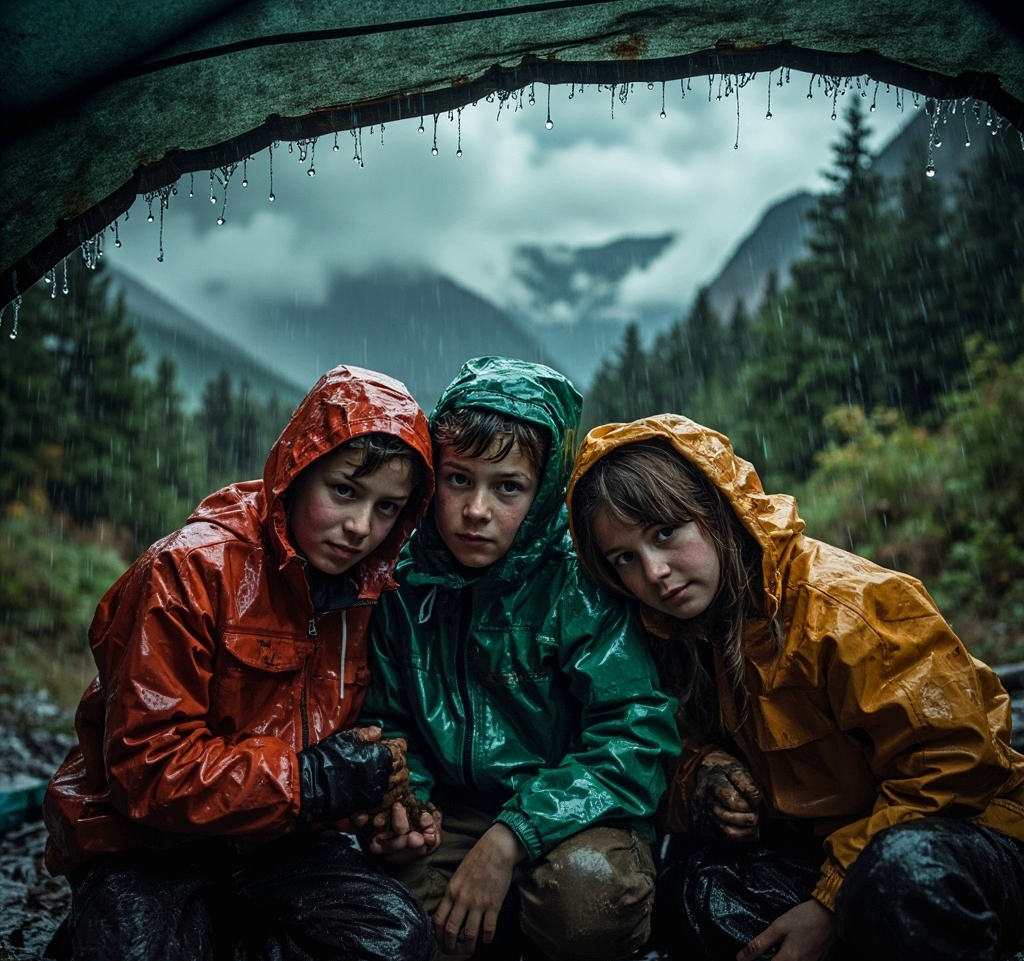
Rachel was a planner. She had the hiking route printed, weather forecast checked, and snacks labeled by hour.
Ben, on the other hand, was the total opposite — the definition of happy-go-lucky.
“We’ll figure it out,” he said, tossing a granola bar into his half-zipped backpack. “What’s the worst that can happen?”
“Well, famous last words,” Rachel muttered as they headed into the woods.
By noon, they were off-trail and low on water.
“This is what happens when you don’t play it safe,” she grumbled.
But Ben just laughed, pulled out a tiny map from his sock (why?), and somehow led them back to the main path.
“You’ve got to admit,” he said, “it’s more fun when you go with the flow.”
Rachel rolled her eyes, then smiled. “I guess you’re not totally useless.”
Later that evening, they sat by the campfire, watching the stars.
“You know,” she said, “maybe I should try being less rigid.”
“And maybe,” Ben replied, “I should start packing real maps.”
Rachel laughed. “Wow, look who’s finally coming around.”
Idioms Used in the Story
1. Happy-go-lucky
Meaning: Cheerfully unconcerned; carefree and relaxed.
Examples:
- He’s a happy-go-lucky guy who never worries about the future.
- Her happy-go-lucky attitude makes her fun to be around.
2. Famous last words
Meaning: A sarcastic comment when someone is overly confident and might be proven wrong.
Examples:
- “It’ll be easy!” “Famous last words.”
- He said, “This storm won’t last long”—famous last words.
3. Play it safe
Meaning: To act cautiously; avoid risks.
Examples:
- I decided to play it safe and bring extra supplies.
- She always plays it safe when investing.
4. Go with the flow
Meaning: To accept situations as they happen; be flexible.
Examples:
- On vacation, I just go with the flow.
- Sometimes it’s better to go with the flow than overthink.
5. Come around
Meaning: To change one’s opinion or behavior gradually.
Examples:
- He didn’t like yoga at first, but he came around.
- She finally came around to my point of view.


